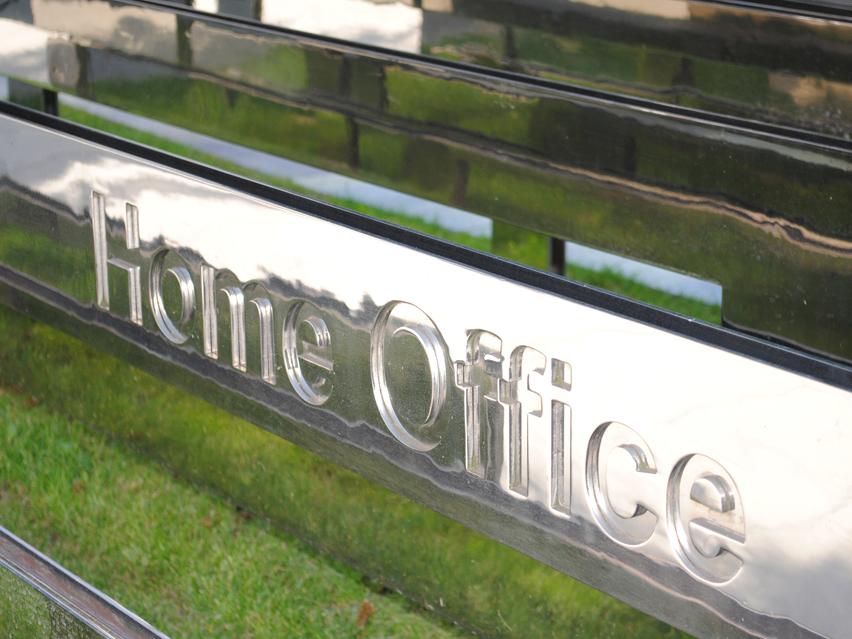
Brian Sims
Editor

Brian Sims
Editor
ON MONDAY 1 March, the Covert Human Intelligence Sources (Criminal Conduct) Act 2021 received Royal Assent in the Houses of Parliament and became law. The Act provides a clear and consistent statutory basis such that the intelligence and enforcement agencies and public bodies alike have the right tools at their disposal in order to keep the nation safe.

This long-standing critical capability supports the work of undercover agents in preventing and safeguarding victims from serious crimes, including terrorism, by ensuring that they can gain the trust of those individuals under investigation.
Robust and independent oversight of the capability is provided by the Investigatory Powers Commissioner. All authorisations must be notified to that Government office within seven days of being granted, providing the Commissioner with real-time oversight of all criminal conduct authorisations.
Sir Brian Leveson replaced Sir Adrian Fulford as the Investigatory Powers Commissioner in October 2019. Before taking up the role, Sir Brian was President of the Queen’s Bench Division and Head of Criminal Justice for England and Wales.
Annual Report 2020
Last December, Sir Brian published his Annual Report for 2020 on the use of covert investigatory powers by public authorities. The document provides an overview of the use of investigatory powers by authorised bodies, including UK intelligence agencies, police forces and local councils.
It covers activities conducted in 2019 by the Investigatory Powers Commissioner’s Office (IPCO) and the Office for Communications Data Authorisations (OCDA), both of whom support the Commissioner in carrying out his functions as set out in the Investigatory Powers Act 2016.
The IPCO’s team of inspectors transacted inspections of public authorities throughout the year to ensure that investigatory powers were being used in accordance with the law. Findings and key trends are documented in the report alongside details of any reported errors.
Sir Brian Leveson stated: “I’m delighted to present what is, in reality, my first Annual Report as Investigatory Powers Commissioner. On the whole, I’ve been impressed by the high level of compliance with the legislation and Codes of Practice. I’m confident that both the IPCO and the OCDA can continue to provide a high standard of scrutiny and oversight to ensure that the use of covert powers within the UK fully complies with the nation’s Human Rights obligations.”
Key points to note
The report unearths several key findings. The use of covert human intelligence sources by law enforcement agencies has continued to decrease year-on-year since 2017, falling from 1,958 approvals in 2018 to 1,866 in 2019. Though covert human intelligence sources authorisations for wider public authorities (ie public authorities aside from local councils and law enforcement agencies) have increased from four authorisations in 2018 to 11 in 2019, inspections into their use by wider public authorities also revealed that, while many have the authority to use covert human intelligence sources, they choose not to and instead opt to employ less intrusive powers in order to achieve their means.
Further, the number of serious errors has decreased since 2018. Of the 14 serious error investigations reviewed by the Investigatory Powers Commissioner in 2019, the Commissioner determined that serious harm or prejudice had occurred on only four occasions.
Since commencing operations on 26 March 2019, by the end of 2019 the OCDA had received 71,610 applications for the use of communications data. 2019 saw a continuation in trends regarding law enforcement’s acquisition of communications data. As was the case with the IPCO’s findings in 2018, drug-related offences were found to be the most common offence for which communications data was requested.
The Investigatory Powers Commissioner is responsible for overseeing MI5’s compliance with its internal policies governing participation in criminality by covert human intelligence sources. In 2019, the IPCO’s inspectors were content that MI5 policies were correctly followed in every case that was inspected.
Her Majesty’s Revenue and Customs (HMRC) reported a significant covert human intelligence sources error in 2019. This was the result of an outdated policy being applied to its interaction with witnesses. Following an internal review conducted by HMRC and a follow-up inspection by IPCO, HMRC is now implementing an extensive retraining and re-education programme.
Challenge by Privacy International
In the wake of a challenge by Privacy International back in 2018, the Investigatory Powers Tribunal ruled that GCHQ should review its existing procedures relating to sharing intelligence and bulk datasets under the IPCO’s supervision. To provide oversight that satisfies this judgement, the IPCO reviewed the use of bulk data at GCHQ and has now incorporated the sharing of bulk data with foreign partners into its regular oversight and inspection arrangements.
Following discussions with non-Government organisations, the IPCO identified and published – for the first time – a set of statistics in its 2019 Annual Report to illustrate how the Consolidated Guidance was used in practice by the Ministry of Defence and UK intelligence agencies.
Law enforcement agencies’ use of property interference – such as where there’s a need to covertly interfere with physical property to install a listening device in a person’s house – has fallen in 2019 from 2018, with some such agencies instead opting to submit applications for equipment interference. Equipment interference (ie the process by which an individual’s electronic equipment may be interfered with in a bid to obtain information or communications) has been available to law enforcement agencies since November 2018.
2019 witnessed an increase in requests to retain legal professional privilege material. 98 requests were submitted and 97 of them approved. This is an increase from 77 requests submitted in 2018 resulting in 76 approvals.
Both the IPCO and the OCDA have continued to carry out their core functions throughout COVID-19. Those activities will be detailed in the Investigatory Powers Commissioner’s Annual Report for 2020.
Dorset House
64 High Street
East Grinstead
RH19 3DE
UNITED KINGDOM
01342 31 4300